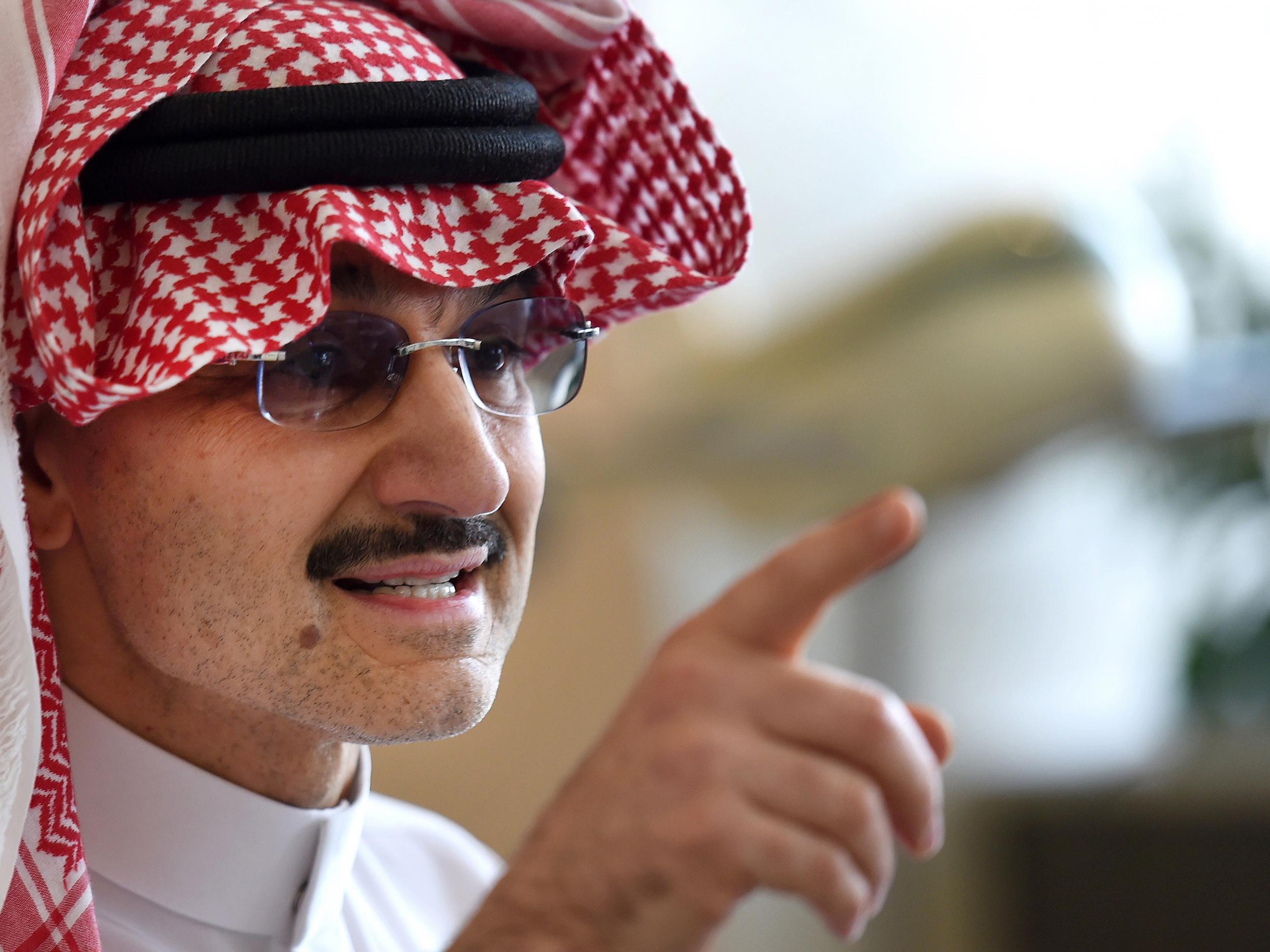Saudi prince says women should be allowed to drive
Preventing women from driving is an 'issue of rights similar to the one that forbade [them] from receiving an education,' says Prince Alwaleed bin Talal

Your support helps us to tell the story
From reproductive rights to climate change to Big Tech, The Independent is on the ground when the story is developing. Whether it's investigating the financials of Elon Musk's pro-Trump PAC or producing our latest documentary, 'The A Word', which shines a light on the American women fighting for reproductive rights, we know how important it is to parse out the facts from the messaging.
At such a critical moment in US history, we need reporters on the ground. Your donation allows us to keep sending journalists to speak to both sides of the story.
The Independent is trusted by Americans across the entire political spectrum. And unlike many other quality news outlets, we choose not to lock Americans out of our reporting and analysis with paywalls. We believe quality journalism should be available to everyone, paid for by those who can afford it.
Your support makes all the difference.Saudi Arabia is in the only country in the world where women are forbidden to drive – but this should be changed, a member of the Saudi royal family has said.
Prince Alwaleed bin Talal published a four-page open letter titled "It is high time that Saudi women started driving their cars" in which he argued for the financial, social and religious benefits of allowing women to drive.
“Stop the debate. Time for women to drive,” the billionaire Prince tweeted in Arabic and English on Tuesday evening with a link to the letter on his website.
Preventing a woman from driving was an “issue of rights similar to the one that forbade her from receiving an education or having an independent identity,” he wrote.
“They are all unjust acts by a traditional society, far more restrictive than what is lawfully allowed by the precepts of religion.”
Women's rights activists have been detained for defying the ban on women driving in the conservative kingdom.
In 1990, dozens of women took to the wheel in the Saudi capital Riyadh in a protest against the ban. They were imprisoned for one day and had their passports confiscated.
More recent action has been hindered by the government, which in 2013 reacted to a planned protest with a heavy police presence, setting up checkpoints to watch for female drivers and individually warning campaign leaders not to drive.
But activists continued to post photographs or films of themselves driving in public online in defiance of the ban.
Mr bin Talal – the 41st richest man in the world – leads the Riyadh-based investment firm Kingdom Holding Company, which holds stakes in several Western companies, including Twitter.
However, he does not hold a formal position in the Saudi government.
The outspoken 61-year-old said that around 1.6 million women who work in Saudi Arabia have to rely on “costly” private chauffeurs or taxis.
Men often have to leave work to take their wives and children to everyday destinations such as clinics, he added, which “takes its toll on the national economy for it undermines the productivity of the work force”.
He said allowing women to drive was “an urgent social demand predicated upon current economic circumstances”.
In April, Deputy Crown Prince Mohammed bin Salman said it was “up to Saudi society” to decide whether to allow women to drive, but “so far the society is not persuaded”.
Join our commenting forum
Join thought-provoking conversations, follow other Independent readers and see their replies
Comments